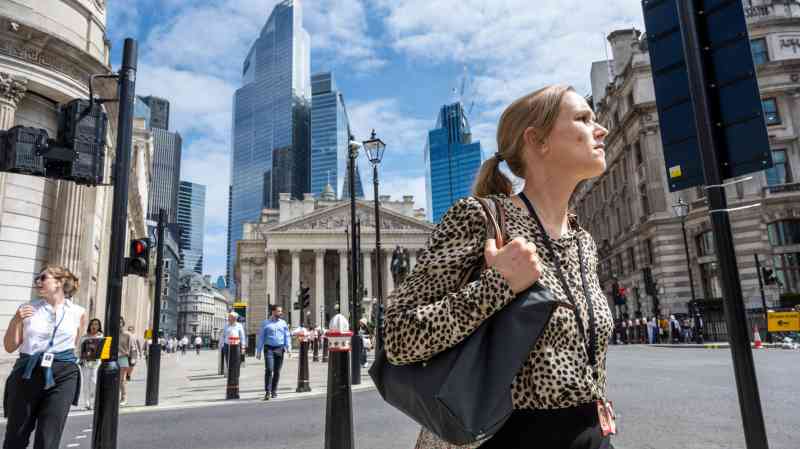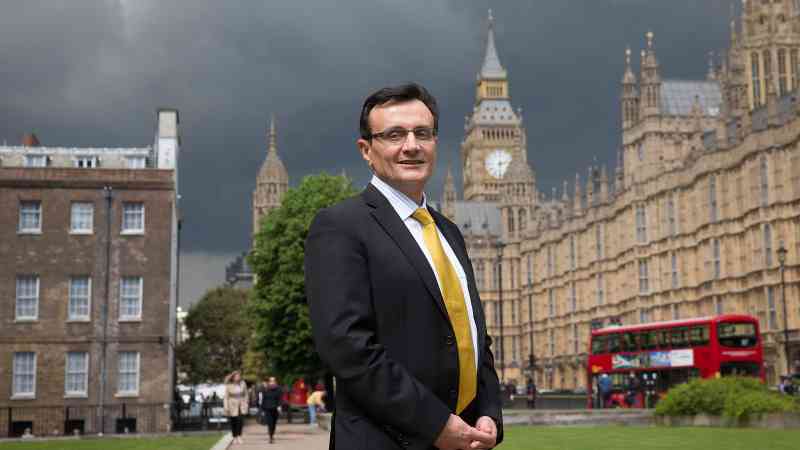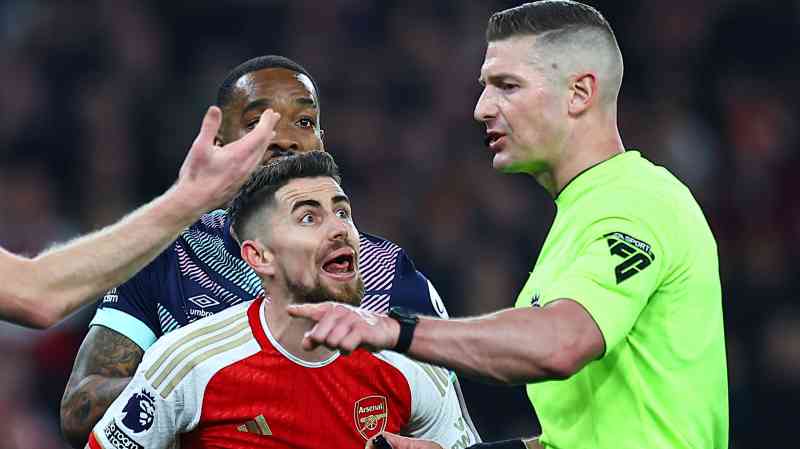After the flash crash, there’s a silver lining: Interest rates cut
Even before he started work on Monday morning, Joe Little had sensed trouble was afoot in global markets. Like others, HSBC Asset Management’s chief global strategist had spent the weekend scrutinising data published the previous Friday showing a weaker than expected jobs market in America.
It triggered what is known as the Sahm rule — an early indicator of US recession based on the rate of change in unemployment, and a cause of concern given the country’s status as the world’s biggest economy.
The data came as sentiment was already weakening, with big technology stocks falling and a rise in the Japanese yen wrong-footing investors.
“You got the weekend to stew on the data. It was a case of taking advantage of every market being closed just to reflect on the news,” said Little. “It’s the red flag.”
Asia heeded the warning as soon as its markets opened on Monday morning, with Japan’s Nikkei index crashing 12 per cent in its biggest one-day fall since the 1987 stock market crash. As the day progressed, the FTSE 100 slid by 2 per cent and Wall Street’s S&P 500 benchmark tumbled by 3 per cent.
Yet by Tuesday, the mayhem seemed to be over, and as the week drew to a close, the City was awash with talk that by the time traders, investors and dealmakers returned from their summer holidays in September, good times would roll — leaving last week’s temporary crash a distant memory.
Many are saying that the markets are ripe for a wave of mergers and acquisitions (M&A) — and, some reckon, those much-sought after initial public offerings (IPOs).
“There’s a flashing green light for the UK,” said Steven Fine, chief executive of the broker Peel Hunt. “Sentiment has definitely improved.”
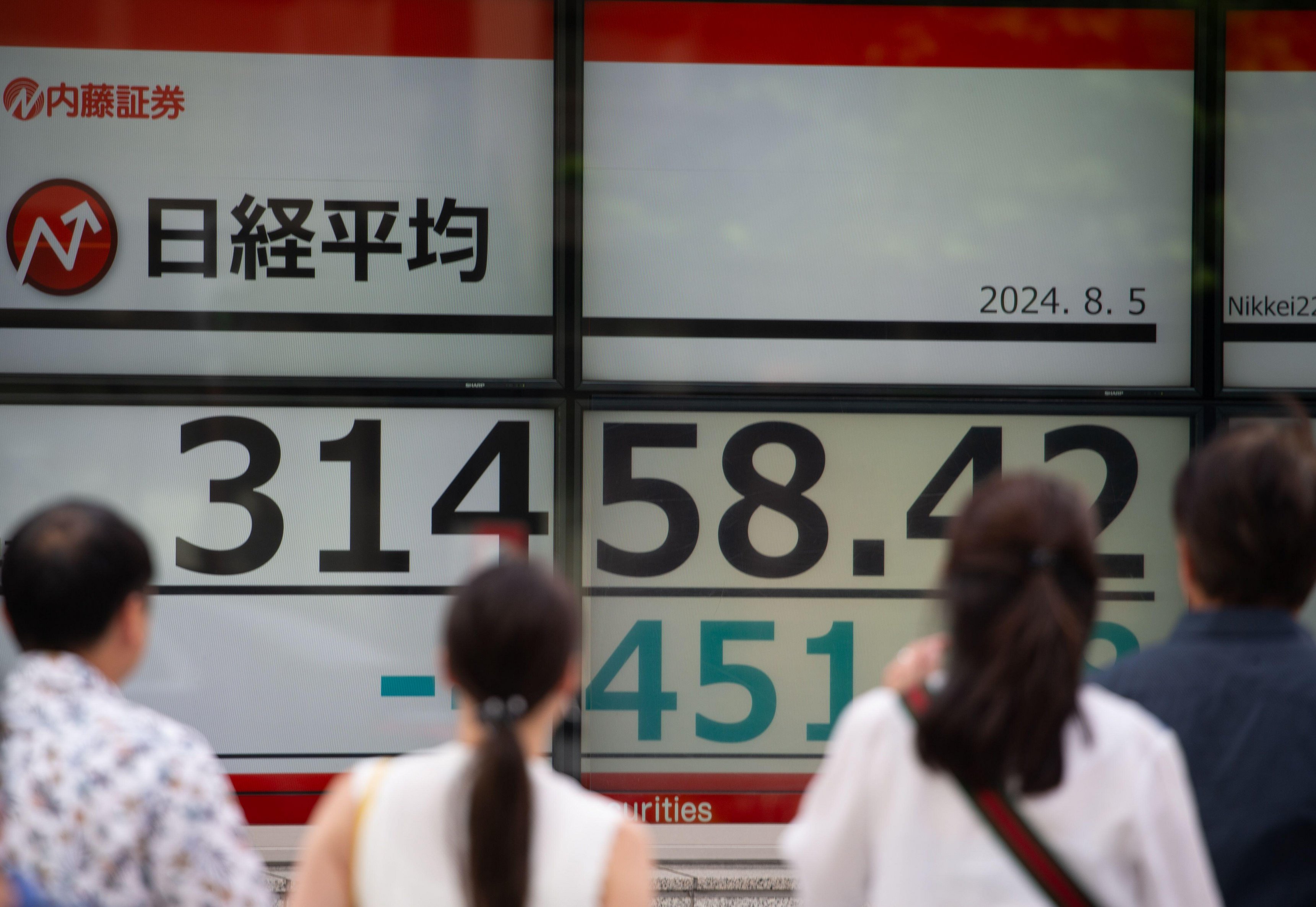
Ironically, the underlying factor behind Monday’s flash crash — signs of a US economic slowdown — was precisely the reason for the newly upbeat mood. Why? Because the flipside of a cooling of the American economy is that the Federal Reserve, America’s central bank, will almost certainly bring down interest rates next month. That would be for the first time since it embarked on its rate-rising spree in March 2022 to combat the inflation spiral.
The so-called Fed Funds Rate currently stands at 5.25-5.5 per cent, after 11 rises.
Jerome Powell, chairman of the Fed, has already said a rate reduction “could be on the table” next month, and the market is now pricing in up to five cuts by the end of this year.
In Britain, the cutting cycle began at the start of this month when the Bank of England reduced rates from 5.25 to 5 per cent.
Lower interest rates matter, said Fine, as they “totally transform confidence”.
“That’s what markets are about. It’s not so much about the magnitude, it’s the trajectory,” he added.
So, what would a rate cut in the planet’s biggest economy do to boost businesses everywhere?
Private equity
The dealmakers in the world’s private equity firms have been struggling more than most since central banks aggressively increased interest rates. PE companies finance their takeovers largely with borrowed money, and the cheaper the debt, the more profit they stand to make. When borrowing costs were at, or near, zero during the Covid era, they were tempted to pay top dollar for a flurry of deals — only to find their interest repayments surging when central banks suddenly put up rates.
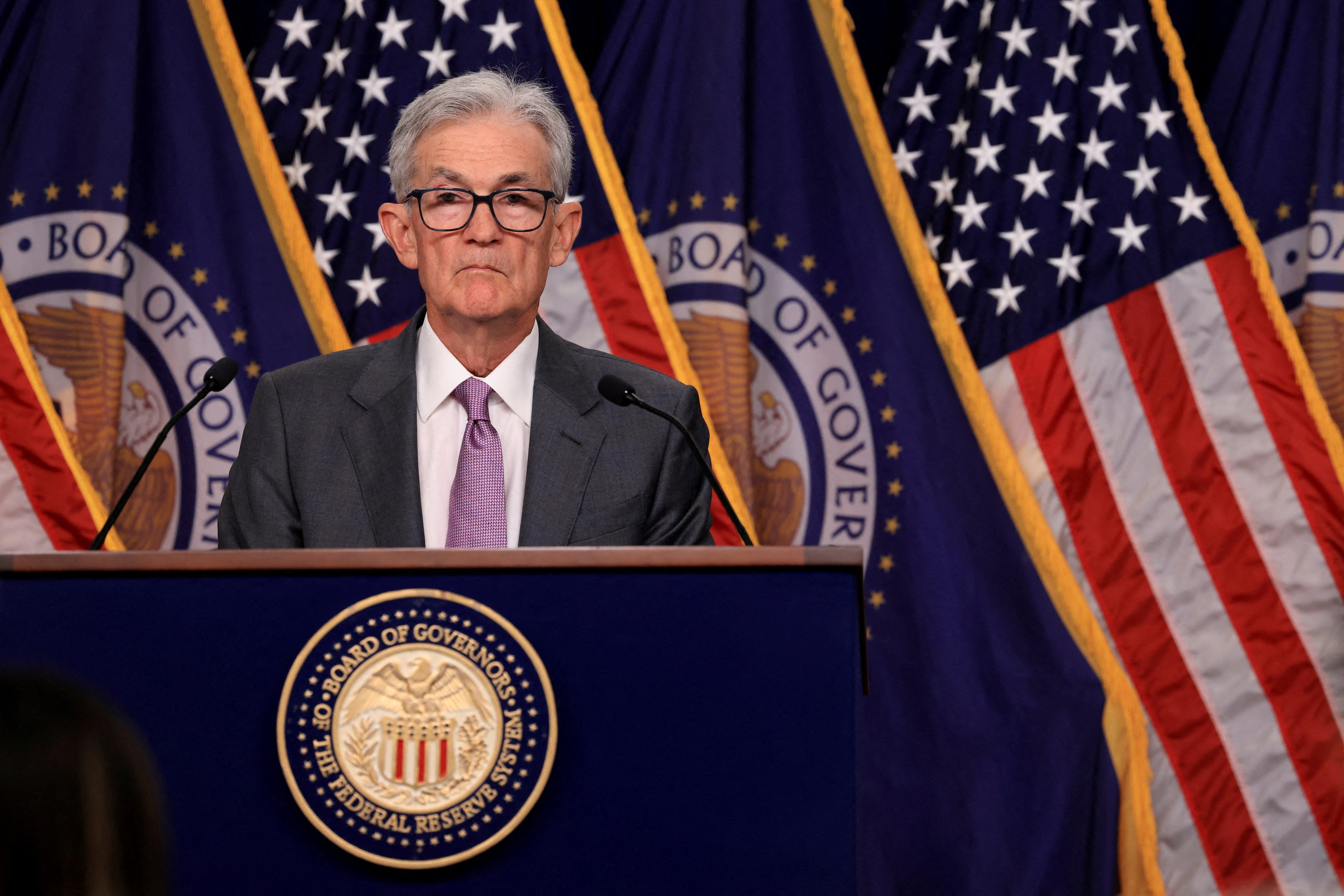
That has been causing huge strains on companies such as the supermarket chain Morrisons, bought for £7 billion by private equity firm Clayton, Dubilier & Rice in a deal clinched in 2021, just before interest rates started to rocket.
It soon faced annual interest costs of £400 million on its £1.7 billion of debt, which was part of the reason it sold off its petrol forecourt business to CD&R’s sister company, Motor Fuel Group. The proceeds went to pay down some of its debts and shave £160 million from its interest bill.
While Morrisons has hedged its interest rate position and is unlikely to benefit from any further central bank cuts, hopes are mounting that lower borrowing costs will throw a lifeline to other private equity deals, and encourage the PE firms behind them to start buying and selling companies again.
Jeanine Arnold, an expert in leveraged finance at the credit-ratings agency Moody’s, said that interest cuts had started to be priced in: “Private equity has been waiting for interest rates to fall. It’s going to really ramp up in terms of new M&A — whether it’s a private equity company selling to another private equity company, or a carve-out of a [division of a] business.”
Senior bankers can see signs of activity coming after the summer. Anthony Zammit, co-head of UK and Ireland investment banking at Morgan Stanley, said he was receiving what are known as RFPs — requests for proposals — from potential clients seeking advice on deals. “It looks like it could be busy in private equity as we move into 2025,” he said.
Zammit made the point that even the expectation of cheaper borrowing is fuelling deals: “We are seeing a lot of activity ahead of anticipated rate cuts.”
Stock market floats
While the City awaits a wave of private equity deals, mergers and acquisitions between stock market-listed companies have already been taking place. Recent deals have included the £2.5 billion tie-up between housebuilders Barratt and Redrow, Virgin Money’s £2.9 billion takeover by Nationwide Building Society, and the takeover of the logistics firm Wincanton by America’s GXO for £760 million.
“There’s been a lot of M&A activity already,” said Matthew Ponsonby, head of global banking in the UK at French bank BNP Paribas. He thinks big companies that had been mulling over deals might now be ready to act — despite the fragile state of geopolitics amid wars in Ukraine and the Middle East and the upcoming election in America.
“Any corporate that is looking to drive growth is re-looking at situations they’ve been thinking about for a number of years, and questioning, ‘You know, why not now?’ ”
The hope is that more companies will also choose to embark on IPOs as stock markets start to stabilise and even rally if rates fall. The theory goes that lower interest rates will drive investors back into equities to seek better returns.
One City source said that despite a shortage of IPOs in London this year, those that have taken place — such as the computer maker Raspberry Pi — have been a success.
Property

Property purchases — both commercial and residential — are also generally largely funded through debt. And high interest rates have caused a dramatic slowdown in activity across the world.
Blackstone, the giant of the private equity sector with $1 trillion of assets, has admitted that higher rates have led to cuts in its returns to investors, particularly in its property deals, where it is the biggest investor in the world. In the UK, it owns swathes of commercial property, from the arches under Britain’s railways to the country’s biggest warehouses.
But Jonathan Gray, president of the American firm, recently made it clear that the expected Fed rate cuts would fuel its deal activity.
David Hudson, a partner in the restructuring team at the professional services firm FRP, said the impact on market sentiment of lower rates to come was already clear. “There is a bit of a feelgood factor, thinking that with a bit of relief in interest rates, it will create a bit of supply and demand which has been missing recently,” said Hudson. “We’re hearing positive news out there.” Still, some restructurings might come first.
Housebuilders started to reflect that last week, with the FTSE 100’s Persimmon reporting that the fall in mortgage rates was already encouraging more people to buy new homes.
A word of caution
However, there are still plenty of risks in the global economy, including in the US, which has continued powering ahead even as the UK and Europe have been sluggish.
When the Federal Reserve does eventually cut rates, that may be, as HSBC’s Little put it, “the silver lining” of last week’s market mayhem — but it depended on what the central bank’s reasoning was. Will it be for the “good news” reason that inflation is coming under control, or because the Fed fears recession is on the way?
Signs of a US slowdown are growing. Only last week, Airbnb warned that Americans were booking fewer holidays amid weaker consumer spending.
Wei Li, global chief investment strategist at the fund management behemoth BlackRock, cited the economist John Maynard Keynes’s metaphor of “animal spirits” — the ways in which human emotion drives people’s financial decision-making in uncertain times.
“If rate cuts take place because inflation has fallen, which is our expectation, then it could be good for animal spirits. But if they’re because of recession, then that’s not going to be supportive of animal spirits, because we will have bigger challenges to deal with.”



